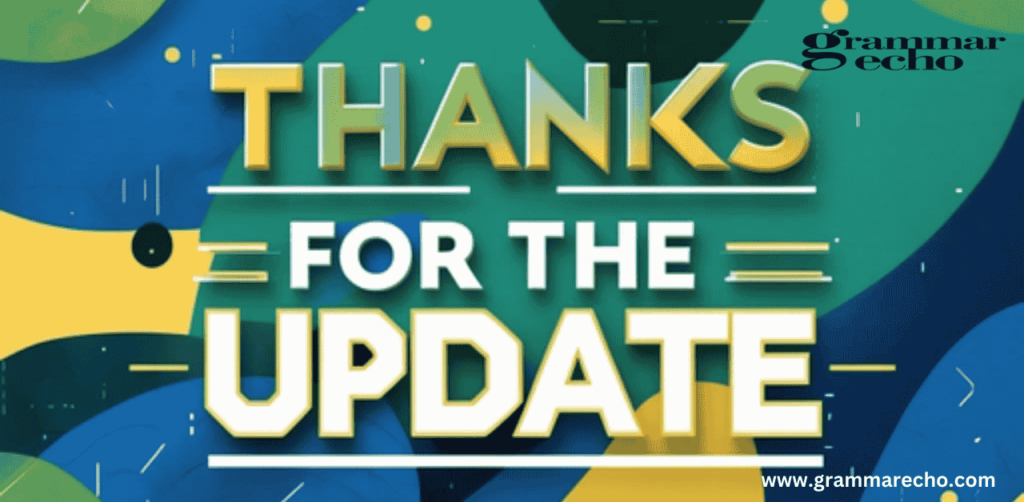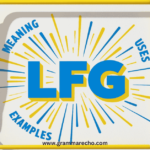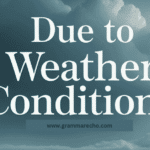“Thanks for the Heads Up” is a polite way to show gratitude. It acknowledges the effort someone makes to keep you informed. This phrase fits both formal and casual situations.
Using this phrase makes you sound professional and approachable. It helps build trust and shows respect. A thoughtful response can leave a lasting impression.
You can use “Thanks for the Update” in emails, messages, or conversations. It’s a quick way to appreciate shared details. Simple words like these strengthen connections.
20 Alternatives to Say “Thanks for the Heads Up”

Read this list of fresh and unique list of 20 alternatives of “Thanks For the Heads Up.” and use them in your professional communication.
- Thank You for the Update
- I Appreciate the Heads Up
- Grateful for the Information
- Much Obliged for the Notice
- Thanks for Keeping Me Informed
- I Appreciate the Reminder
- Cheers for Letting Me Know
- Thanks for the Insight
- Appreciate the Advance Notice
- Thanks for the Heads-Up Email
- Thanks for Letting Me Know
- I Appreciate the Details
- Grateful for the Heads-U
- Thanks for Filling Me In
- Appreciate the Quick Update
- Much Obliged for the Heads-Up
- Thanks for Keeping Me Updated
- Cheers for the Information
- I Appreciate Your Note
- Thanks for the Update, Much Appreciated
You Must Read: 20 Other Ways to Say “Hope to See You Soon”
1. “Thank You for the Update”
This phrase is a versatile and professional way to express gratitude for shared information. It’s suitable for formal and informal contexts alike.
Examples:
Email: Subject: Thank You for the Update
Hi Sarah,
Thank you for the update on the marketing campaign. It helps us plan the next steps effectively. Please let me know if there’s anything else I should prepare.
Best regards,
David
Message:
Thanks for the update about the meeting reschedule. I’ll adjust my calendar accordingly.
In-person Scenario:
“Thanks for the update on the new policy changes. I’ll make sure to review the document this afternoon.”
2. “I Appreciate the Heads Up”

This alternative is warm and acknowledges the effort someone made to inform you.
Examples:
Email: Subject: Appreciate the Heads Up
Hi Michael,
I appreciate the heads up about the upcoming team review. It’s good to know we’ll be aligning soon. Thanks again for sharing this in advance.
Kind regards,
Rachel
Message:
“Thanks for the heads up on the traffic delays this morning. I’ll take an earlier route.”
In-person Scenario:
“I really appreciate the heads up about the new software launch. It gives me time to prep.”
3. “Grateful for the Information”
Use this phrase when you want to convey a deeper level of appreciation, particularly for important details.
Examples:
Email: Subject: Grateful for the Information
Dear Emily,
I’m grateful for the information you provided about the compliance requirements. Your thorough explanation has clarified our approach moving forward.
Thank you,
John
Message:
“Grateful for the info on the client’s feedback. It’s insightful and helps us adapt better.”
In-person Scenario:
“I’m grateful for the information you shared about the new guidelines. It’s really helpful.”
4. “Much Obliged for the Notice”
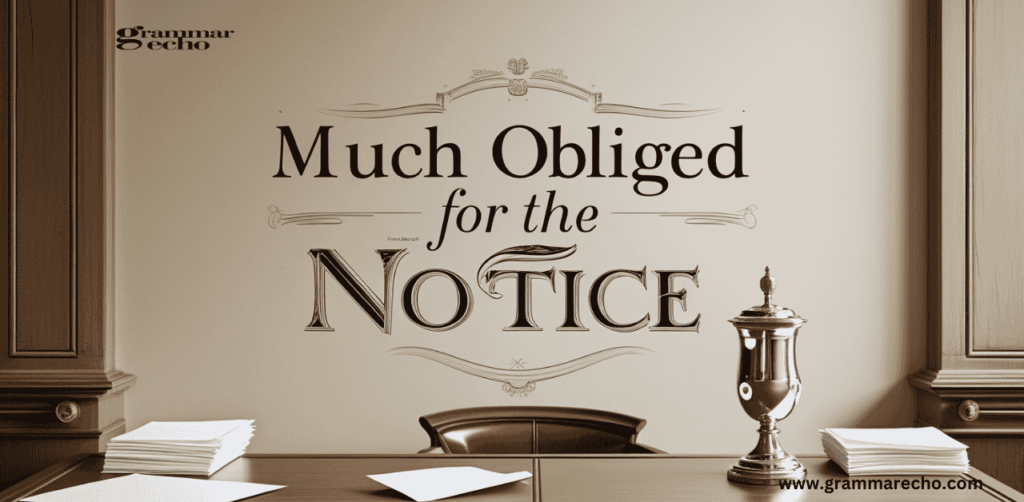
A polite and slightly formal way to express thanks, often used in professional communications.
Examples:
Email: Subject: Much Obliged for the Notice
Dear Alex,
Much obliged for the notice about the schedule changes. I’ll ensure my team is informed promptly. Please reach out if there’s more we need to know.
Sincerely,
Laura
Message:
“Much obliged for notifying me about the late delivery. I’ll inform the logistics team immediately.”
In-person Scenario:
“I’m much obliged for the notice regarding the technical issue. I’ll take action to resolve it.”
5. “Thanks for Keeping Me Informed”

This phrase is ideal for continuous updates in a dynamic environment.
Examples:
Email: Subject: Thanks for Keeping Me Informed
Hi Daniel,
Thanks for keeping me informed about the project’s progress. I’m glad to see things moving smoothly. Let me know if there are any roadblocks.
Best,
Sophia
Message:
“Thanks for keeping me in the loop about the upcoming client visit. I’ll prepare the presentation.”
In-person Scenario:
“Thanks for keeping me informed about the staffing changes. It’s good to know ahead of time.”
6. “I Appreciate the Reminder”
A helpful phrase for situations where someone’s alert serves as a useful prompt.
Examples:
Email: Subject: Appreciate the Reminder
Dear Jack,
I appreciate the reminder about tomorrow’s training session. It ensures I won’t miss anything important. Thanks again!
Warm regards,
Natalie
Message:
“Thanks for the reminder to submit my report. I’ll do it today.”
In-person Scenario:
“I appreciate the reminder about the policy review. I’ll look into it right away.”
7. “Cheers for Letting Me Know”
A casual and friendly way to acknowledge the information shared, often used in informal settings.
Examples:
Email:
Subject: Cheers for Letting Me Know
Hi Lucy,
Cheers for letting me know about the team’s availability next week. It helps me finalize the meeting schedule.
Thanks,
Henry
Message:
“Cheers for letting me know the client approved the proposal. Great news!”
In-person Scenario:
“Cheers for letting me know about the event timing change. I’ll be there earlier.”
8. “Thanks for the Insight”
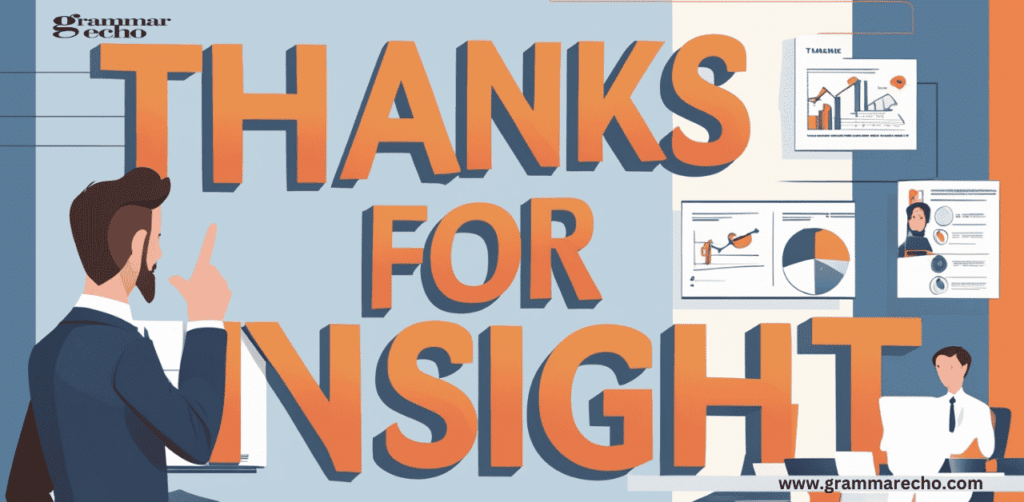
A thoughtful way to express appreciation for valuable or meaningful information.
Examples:
Email:
Subject: Thanks for the Insight
Dear Clara,
Thanks for the insight into the client’s preferences. It will help us tailor the proposal effectively. I appreciate your guidance.
Best regards,
Liam
Message:
“Thanks for the insight on the project’s challenges. It gives me a clear path forward.”
In-person Scenario:
“Thanks for the insight about market trends. It’s incredibly useful for our strategy.”
9. “Appreciate the Advance Notice”
A good choice for acknowledging a heads-up provided well in advance.
Examples:
Email:
Subject: Appreciate the Advance Notice
Hi Olivia,
I appreciate the advance notice about the system maintenance next week. I’ll inform my team and plan accordingly. Thanks for letting us know!
Sincerely,
Ethan
Message:
“Appreciate the advance notice about the schedule change. It helps to plan ahead.”
In-person Scenario:
“Thanks for the advance notice on the deadline extension. It’s a relief to have more time.”
Read Also: 15 Other Ways to Say “Family Emergency”
10. “Thanks for the Heads-Up Email”
This phrase is great for acknowledging a specific type of communication while keeping it professional.
Examples:
Email:
Subject: Thanks for the Heads-Up Email
Hi Chris,
Thanks for the heads-up email about the upcoming software update. It’s helpful to know what to expect and when. I’ll pass this along to my team.
Best regards,
Mia
Message:
“Thanks for the heads-up email on the training session. I’ve marked it on my calendar.”
In-person Scenario:
“Thanks for the heads-up email regarding the product launch. I’ll prepare my notes.”
11. “Thanks for Letting Me Know”
This phrase is casual yet professional, making it versatile for various settings.
Examples:
Email:
Subject: Thanks for Letting Me Know
Hi Anna,
Thanks for letting me know about the budget changes. I’ll adjust the proposal accordingly. Let me know if there’s anything else I should consider.
Best,
Mark
Message:
“Thanks for letting me know about the schedule conflict. I’ll reschedule our call.”
In-person Scenario:
“Thanks for letting me know about the new guidelines. I’ll review them before the meeting.”
12. “I Appreciate the Details”

This option conveys gratitude for comprehensive or specific information.
Examples:
Email:
Subject: Appreciate the Details
Dear Eric,
I appreciate the details you provided on the client’s feedback. It’s incredibly useful for refining our strategy.
Thank you,
Julia
Message:
“Thanks for the details on the shipment delay. I’ll update the customer.”
In-person Scenario:
“I really appreciate the details you shared about the training schedule. It’s very clear.”
13. “Grateful for the Heads-Up”
A slightly formal phrase that highlights gratitude for being informed.
Examples:
Email:
Subject: Grateful for the Heads-Up
Hi Kevin,
Grateful for the heads-up on the policy change. It allows us to prepare the necessary adjustments.
Thanks,
Jessica
Message:
“Grateful for the heads-up on the meeting delay. I’ll make the necessary changes to my calendar.”
In-person Scenario:
“I’m grateful for the heads-up about the project deadline shift. It helps me reorganize.”
14. “Thanks for Filling Me In”
A friendly and casual alternative to express appreciation for shared updates.
Examples:
Email:
Subject: Thanks for Filling Me In
Dear Zoe,
Thanks for filling me in on the progress of the new initiative. It’s exciting to see things moving forward.
Kind regards,
Tom
Message:
“Thanks for filling me in about the changes to the itinerary. I’ll adjust accordingly.”
In-person Scenario:
“Thanks for filling me in on the details of the report. I’ll work on it this evening.”
15. “Appreciate the Quick Update”
A practical phrase to thank someone for a brief but important update.
Examples:
Email:
Subject: Appreciate the Quick Update
Hi Olivia,
I appreciate the quick update on the delivery timeline. It helps us plan better on our end.
Best regards,
Aaron
Message:
“Appreciate the quick update on the agenda change. I’ll revise my notes.”
In-person Scenario:
“Thanks for the quick update about the supplier issue. I’ll follow up immediately.”
16. “Much Obliged for the Heads-Up”
A formal and courteous phrase, perfect for professional settings.
Examples:
Email:
Subject: Much Obliged for the Heads-Up
Dear Sam,
Much obliged for the heads-up about the team reorganization. I’ll schedule time to discuss the implications with my department.
Sincerely,
Emily
Message:
“Much obliged for the heads-up on the system downtime. I’ll notify the users.”
In-person Scenario:
“I’m much obliged for the heads-up on the policy revision. It’s very helpful.”
17. “Thanks for Keeping Me Updated”
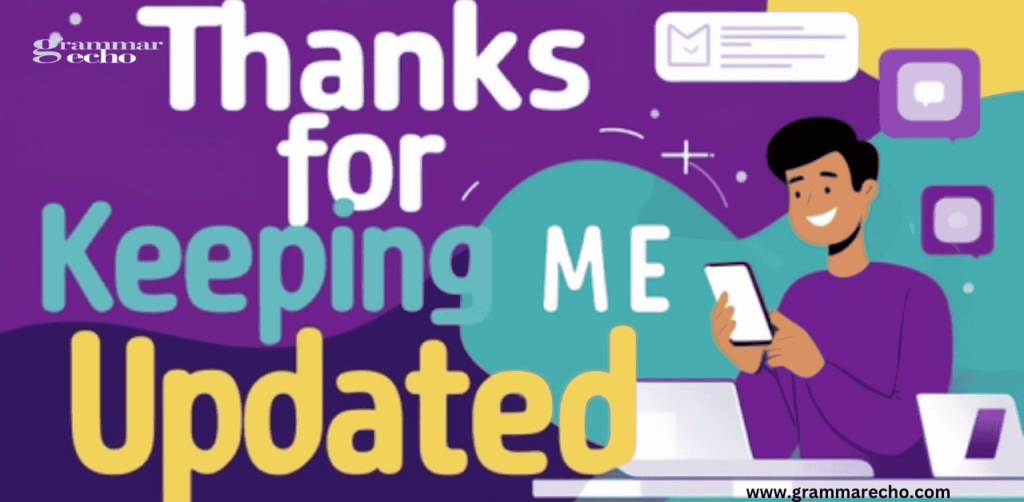
This alternative emphasizes gratitude for continuous information sharing.
Examples:
Email:
Subject: Thanks for Keeping Me Updated
Hi Rachel,
Thanks for keeping me updated on the client’s requirements. It ensures we’re always on the same page.
Warm regards,
Luke
Message:
“Thanks for keeping me updated on the new process. It’s super helpful.”
In-person Scenario:
“Thanks for keeping me updated on the changes to the schedule. It’s appreciated.”
18. “Cheers for the Information”
A casual and friendly way to thank someone, often used in less formal settings.
Examples:
Email:
Subject: Cheers for the Information
Hi James,
Cheers for the information about the product release timeline. It’s great to have clarity on the next steps.
Best,
Emma
Message:
“Cheers for the information on the new campaign. It’s exciting!”
In-person Scenario:
“Cheers for the information about the meeting location change. I’ll be there on time.”
Must Read: 20 Other Ways to Say “thanks for letting me know”
19. “I Appreciate Your Note”
A polite and professional way to acknowledge someone’s effort to inform you.
Examples:
Email:
Subject: Appreciate Your Note
Dear Mia,
I appreciate your note about the updated regulations. It helps us stay compliant and proactive.
Thank you,
Ben
Message:
“Appreciate your note on the draft changes. I’ll make the edits right away.”
In-person Scenario:
“I appreciate your note about the funding application deadline. I’ll submit it today.”
20. “Thanks for the Update, Much Appreciated”
A warm and appreciative phrase that balances formality and friendliness.
Examples:
Email:
Subject: Thanks for the Update, Much Appreciated
Hi Chris,
Thanks for the update, much appreciated. It’s reassuring to know the project is on track. Let me know if anything changes.
Best,
Sophia
Message:
“Thanks for the update, much appreciated. It’s helpful to have a clear direction.”
In-person Scenario:
“Thanks for the update, much appreciated. I’ll take care of the next steps immediately.”
Final Thoughts
Expressing gratitude with phrases like “Thanks for the Update” can make communication smoother. It shows respect for others’ efforts and builds stronger connections. Simple words carry great power in fostering trust and understanding.
Using the right phrases in the right situations reflects professionalism and care. Whether in emails, messages, or face-to-face talks, this small gesture leaves a positive impression. Appreciation creates better relationships and opens doors for better collaboration.
FAQ’s
You can use it anytime someone shares useful information or updates. It’s suitable for both formal and casual situations.
Yes, it’s a polite and professional phrase to acknowledge information shared via email. It helps maintain good communication.
Absolutely! Alternatives like “I Appreciate the Heads Up” or “Grateful for the Information” work well depending on the context.
Brad Hook is a seasoned blogger and wordsmith behind Grammar Echo. With years of experience in the digital realm, Brad has honed his craft, offering readers insightful content on language, writing, and communication. His passion for grammar and clear expression shines through in every post.

